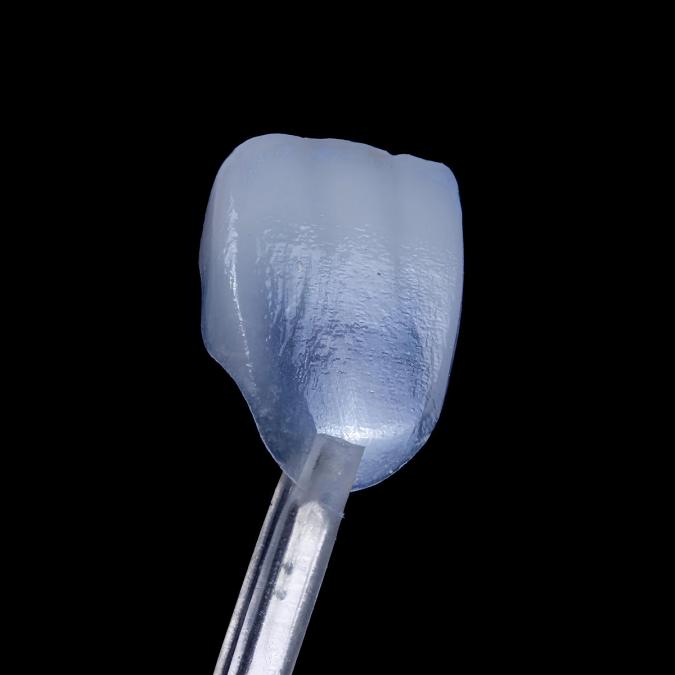
Cosmetic Dentistry: Veneers That Look Like Your Real Teeth
Published on Sep 26, 2025 | 6 minute read

Ever catch yourself covering your smile in photos and think, “There has to be a better way”? In cosmetic dentistry, veneers are one of the most reliable ways to change the shape, shade, and symmetry of teeth with results that still look like you. When designed well, these restorations blend quietly into your face—brightening without shouting.
What Are Veneers and How Do They Work?
These restorations are slim, custom shells that bond to the front of teeth. Cosmetic dentistry uses two main types: porcelain veneers and composite veneers. Porcelain veneers are crafted in a lab and known for lifelike translucency and stain resistance. Composite veneers are sculpted chairside from tooth-colored resin and can be a budget-friendlier option. In both cases, veneers can close small gaps, lengthen worn edges, mask discoloration that doesn’t respond to whitening, and create a more balanced smile line.
Who’s a Good Candidate for Veneers?
Most healthy adults who want to change the look of their front teeth are candidates. Your gums should be in good shape, and cavities need to be treated first. If you grind your teeth, a nightguard protects your new edges. Significant alignment or bite issues may do better with orthodontics first, then veneers for final shape and color. The key point for cosmetic dentistry: veneers enhance what’s already there, but they don’t replace the need for a healthy foundation.
Step-by-Step: What to Expect
The process starts with a conversation about goals and photos to map your smile. For porcelain veneers, a small amount of enamel is shaped—just enough for the veneer to sit flush—and impressions are sent to a lab. You’ll leave with temporary coverings while the final set is crafted. At the second visit, the dentist checks fit and shade, then bonds the veneers securely. Composite veneers often happen in one appointment: the dentist layers and polishes the material until it looks seamless. Either way, numbing keeps you comfortable and appointments are designed to be efficient.
How Long Do Veneers Last?
With good home care, porcelain veneers often last a decade or longer; composite veneers may need touch-ups sooner. Durability depends on habits—chewing ice, opening packages with your teeth, or nightly grinding can shorten their life. Regular cleanings keep the edges polished and the gums healthy around them. Small chips can be smoothed or repaired, and a nightguard helps protect against wear.
Benefits (What the Research and Guidelines Say)
Professional guidance supports the safety and predictability of veneers when done thoughtfully. The American Dental Association (ADA) outlines that porcelain restorations are biocompatible and can resist stains well when glazed and maintained. Peer-reviewed studies in restorative dentistry journals report high satisfaction rates and strong bonding when teeth are properly prepared and isolation is maintained during cementation. For many people choosing cosmetic dentistry, veneers provide a conservative way to change color and shape compared with full crowns, which remove more tooth structure.
Porcelain vs. Composite in Cosmetic Dentistry: How to Choose
Both options can look fantastic, but they shine in different ways. Porcelain veneers are fabricated by skilled technicians using ceramic layered to mimic enamel. They hold color beautifully over time and reflect light like natural teeth. They do require at least two visits and a modest amount of enamel shaping. Composite veneers are artistically layered right on the tooth in one sitting. They’re more affordable and easier to tweak later, though they can pick up surface stains and may need periodic polishing or small repairs over the years.
Cost, Financing, and Value
Cosmetic dentistry is an investment, and veneers are no exception. Pricing varies based on the number of teeth, materials, and the complexity of your case. Many people spread out treatment—addressing the most visible teeth first—or use financing. In terms of value, veneers often replace years of whitening, bonding touch-ups, and shape corrections with one coordinated plan, which is why patients often describe them as “worth it” long-term.
Care Tips to Keep Veneers Looking New
Treat veneers like great shoes—use them for the right job and they’ll stay gorgeous. Brush twice daily with a soft brush and non-abrasive toothpaste. Clean between teeth every day to protect the edges. Wear a custom nightguard if you clench or play contact sports (a mouthguard is a must). Skip hard candies, ice crunching, and nail biting. And keep regular professional cleanings so your hygienist can polish without scratching the surface.
Realistic Expectations Matter
Veneers can dramatically improve a smile, but they’re not magic. If a tooth is severely rotated, discolored from internal staining, or has large existing fillings, your dentist may recommend a combination of treatments to get the look you want. The conversation is part art, part science—what shade suits your skin tone, how much translucency you like, and what “natural” means to you. This is where cosmetic dentistry shines: veneers are customized to your face, not pulled off a shelf.
A Friendly Wrap-Up
Cosmetic dentistry is at its best when form and function meet. When you’re ready for a confident, photo-proof smile, these restorations offer a mix of beauty and practicality. They can look incredibly natural, they’re designed to last, and they fit into real life. If you’ve been weighing cosmetic dentistry, veneers might be the nudge you’ve been waiting for.
Curious how veneers would look on you? Contact The Dental Boutique, 3700 East Bay Dr., Largo, FL 33771 at 727-250-0052 to Schedule a Consultation—or Book an Appointment online at largodentalboutique.com to explore a personalized cosmetic dentistry plan.